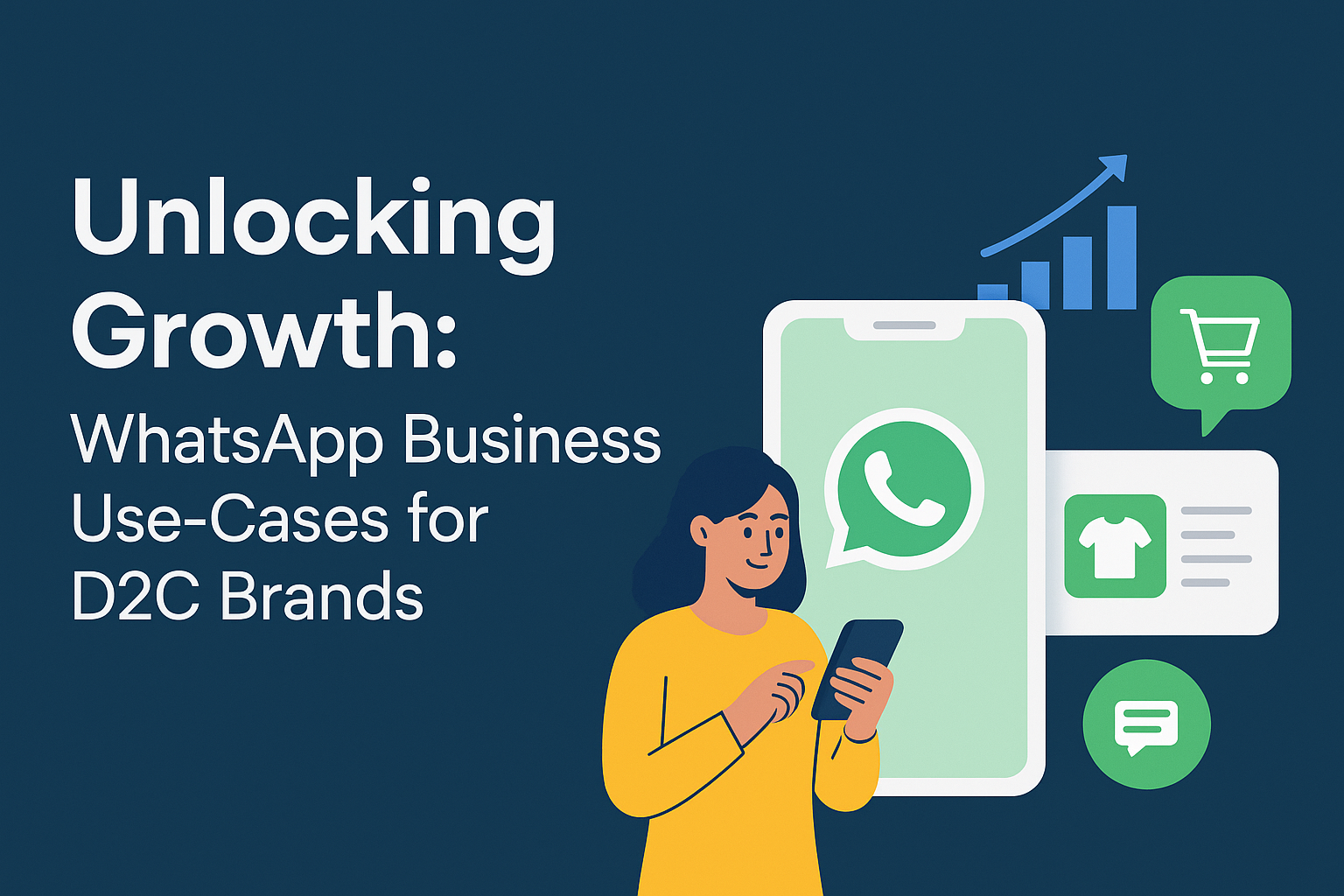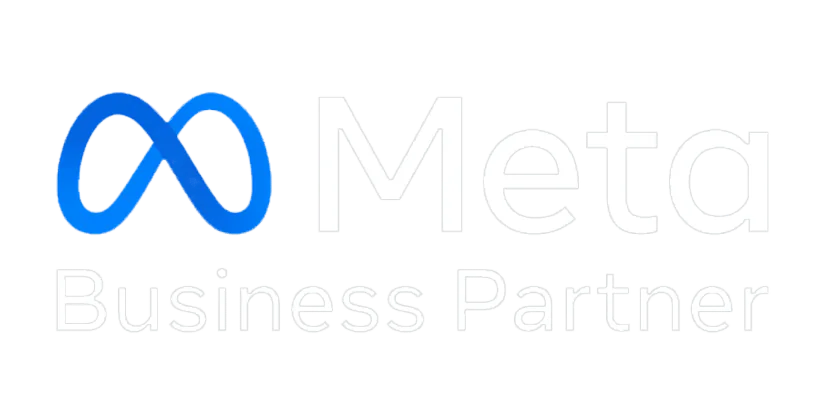Unlocking Growth: WhatsApp Business Use-Cases for D2C Brands

Introduction In the crowded world of Direct-to-Consumer (D2C) brands, attracting visitors to your website or app is only half the battle. The bigger challenge lies in converting them into buyers — and then keeping them coming back. Mobile-first audiences expect personal, fast and friction-free experiences. That’s where WhatsApp steps in. With its massive global user base and deeply trusted environment, WhatsApp is no longer just a messaging app — it’s a conversational commerce powerhouse. For D2C brands, using WhatsApp Business (and when scale demands, its API) opens a direct line to the customer, from discovery to checkout and beyond. In this blog, we’ll walk through concrete use-cases where WhatsApp adds real value, best practices to follow, and how your brand can get started to unlock growth. Why WhatsApp Business is a Game-Changer for D2C Brands In short: for D2C brands, WhatsApp Business offers high visibility + low friction + personal touch = a powerful growth lever. Key Use-Cases of WhatsApp Business for D2C Brands Use-Case 1 – Cart Abandonment Recovery & Notifications Cart abandonment remains a major pain point for D2C brands: users browse, add to cart, and vanish. But a timely WhatsApp message can recover the sale.Using WhatsApp Business, brands can send a personalised reminder like: “Hi [Name], you left these items in your cart — they’re almost gone!” with a clickable product link. Because WhatsApp messages get opened almost immediately in many markets, this creates urgency and a direct line back to checkout.Case studies show brands using WhatsApp for cart recovery achieved substantial returns. Use-Case 2 – Rich Media Catalogues & Conversational Commerce D2C shoppers expect more than text links. With the WhatsApp Business catalogue and chat-based flows, a brand can present product images, videos, allow customers to browse within chat, ask questions, and even complete purchases without leaving the app.Example: A brand sends a message: “Check out our new summer collection” with a carousel of product cards. The user Taps a card → asks a question in chat → pays via a link or payment flow — all within WhatsApp.Studies show this kind of chat-based commerce can drive up to 3× conversion rates compared to traditional channels. Use-Case 3 – Personalised Promotions & Segmented Broadcasts Because WhatsApp is inherently personal, D2C brands that send generic blasts miss the mark. The magic comes when you segment your audience — by first-time vs returning, by purchase history, interests — and send tailored offers.For instance, segment: “Customers who bought skincare last quarter but not in past month” → send “Hello [Name], we’ve just launched a new serum we think you’ll love” via WhatsApp.This kind of targeted, value-driven message works because engagement is high — consumers prefer personalised chat-based offers. Use-Case 4 – Post-Purchase Experience & Support Acquiring a customer is just step one. The post-purchase journey (order confirmation, shipping update, delivery tracking, returns, feedback) is critical to build loyalty and repeat purchases.WhatsApp Business shines here: send automatic order confirmations, shipping alerts, “Your package will arrive tomorrow between 3-5 PM,” and allow the customer to reply “Reschedule” all in the same chat.Brands using WhatsApp for support report higher satisfaction and retention because the conversation stays within a familiar app. Use-Case 5 – Community & Loyalty Building Beyond one-off purchases, D2C brands succeed when they build communities and loyalty. WhatsApp can serve as a VIP channel: invite loyal customers to an exclusive WhatsApp group or broadcast list where they get early access to launches, referral perks, behind-the-scenes content.This fosters brand intimacy and repeat business — often overlooked in typical D2C acquisition-centric strategies. Best Practices for Implementing WhatsApp Business in a D2C Brand Challenges and Pitfalls to Avoid Action Plan: How Your D2C Brand Can Get Started Conclusion For D2C brands looking to drive growth, not just traffic, the shift from “just getting visits” to “meaningful one-to-one engagement” is critical. The WhatsApp Business platform offers an extraordinary combination of reach, real-time engagement and conversational capability that few channels match. When used with strategy, with respect for the user experience, and supported by data and automation, WhatsApp becomes not just a messaging tool but a sales, service and loyalty engine. FAQs Q1: How can WhatsApp Business help D2C brands grow? WhatsApp Business helps D2C brands grow by improving engagement, automating customer support, and enabling conversational sales that drive higher conversions and repeat purchases. Q2: What is the main difference between WhatsApp Business App and API? The App suits small D2C brands for direct chats, while the API supports larger brands with automation, integrations, and multi-agent support. Q3: Can D2C brands use WhatsApp Business for marketing? Yes. Brands can send personalized promotions, product updates, and exclusive offers to opt-in users, driving better engagement than email or SMS. Q4: Is WhatsApp Business good for customer service? Absolutely. It allows real-time chats, order tracking, and post-purchase support, enhancing satisfaction and retention.













